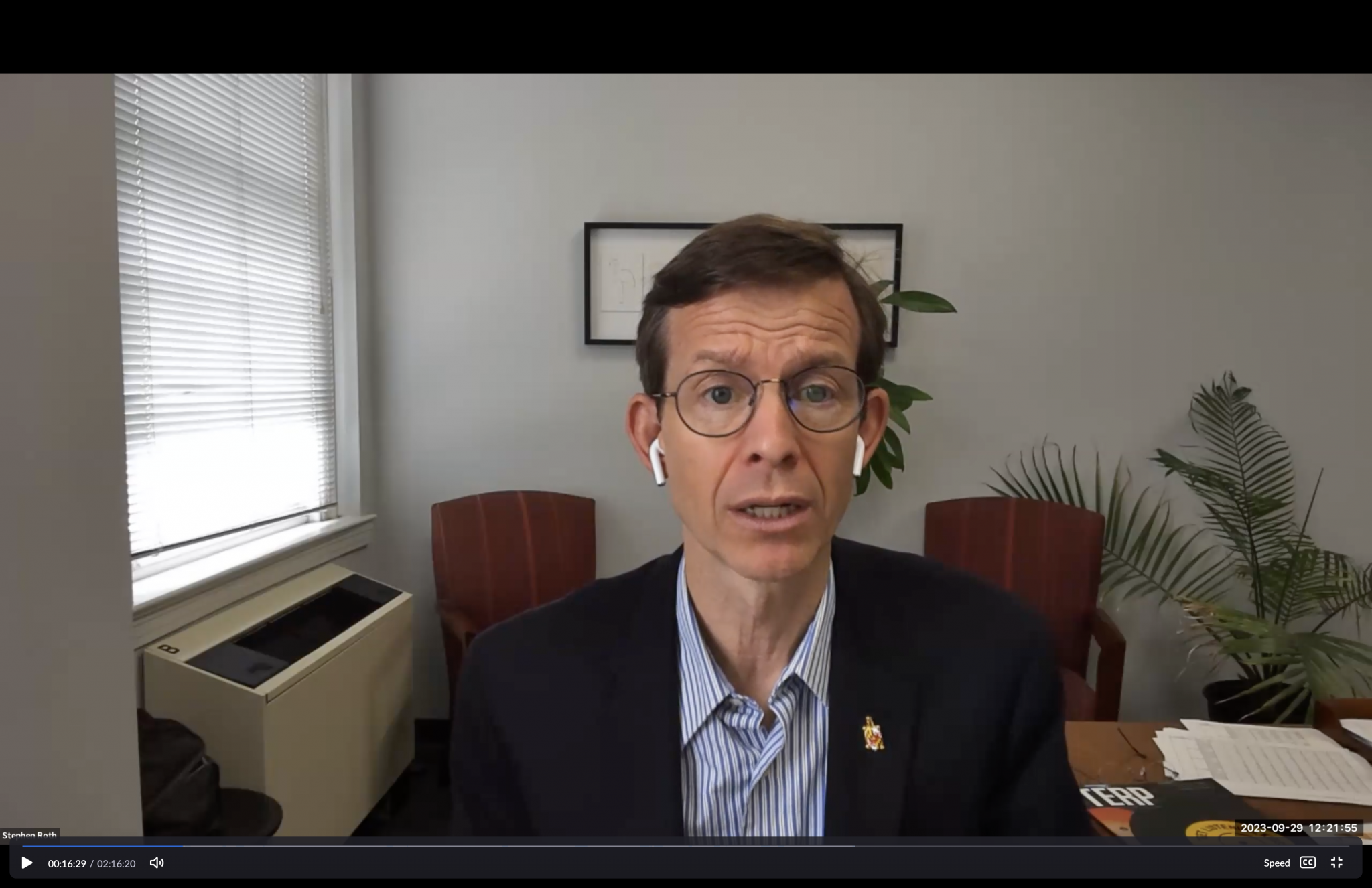The new associate provost and dean of the University of Maryland graduate school joined members of the GSG at their September meeting on Friday to discuss graduate student issues.
Stephen Roth, who assumed the position on July 1, spoke with Graduate Student Government representatives on issues including collective bargaining rights, food insecurity and mental health. Roth previously served as the principal associate dean for the School of Public Health.
After new program representatives were sworn in, Roth began by outlining his three priorities for his term as dean of the graduate school: increasing both graduate students’ satisfaction with their programs and alumni satisfaction with their careers; improving retention and graduation rates for students from historically marginalized identities; and increasing the diversity of the graduate student body.
[Campus unions unite in push for collective bargaining rights]
Roth shared that he is working on a new holistic graduate admissions review process in the wake of the United States Supreme Court striking down race-based affirmative action — a move that prohibited schools from considering a student’s race or ethnicity in admissions. He said he is also trying to boost stipends, improve parental accommodations and revise faculty promotion guidelines to put more weight on mentoring.
Neuroscience and cognitive science representative Rose Ying asked Roth if he supports collective bargaining rights for graduate students.
Currently, graduate workers in the University System of Maryland do not have collective bargaining rights. Many graduate students and members of the Graduate Labor Union, a campus organization previously known as Fearless Student Employees, are lobbying the Maryland General Assembly for collective bargaining rights for graduate workers.
University administrators have previously testified to the Maryland General Assembly against past pieces of legislation that would have granted collective bargaining rights to graduate workers.
“At this point, the campus remains opposed to collective bargaining rights for students,” Roth said at the meeting. “The one challenging element that I am seeing in this is that for those schools that have moved to collective bargaining, their ability to work directly with students is effectively removed.”
Roth said his priorities for graduate education remain the same regardless of if collective bargaining rights are granted to graduate students.
[UMD revokes health insurance waivers for more than 100 international graduate students]
Ali Harding, a program representative from the information studies college, asked about Roth’s plans to assist graduate students who are struggling to make rent or face food insecurity.
“You’ve talked a lot about wanting to increase diversity and a commitment to mental health, how does that jibe with the survey data that one in four graduate students were either concerned about making their rent or were food insecure?” Harding asked Roth. “There’s a lot of nice words being thrown around, but what action are you planning on taking about that?”
Roth said he is aware of food insecurity challenges and that the cost of living in this area is high.
“The stipends that we have currently are above the cost of attendance. I recognize that that still can be challenging for students,” the graduate school dean said. “My goal is to do everything possible to improve the student experience, but we are also a publicly funded institution that has a limited budget. And so every office on this campus is going to have a priority for using those dollars.”
During the Friday meeting, GSG president Autumn Perkey also presented her priorities for the year, which include increasing feedback from graduate students on the Old Leonardtown housing project, addressing food insecurity, improving parental accommodations and increasing support for international graduate students.
“Just because we’re on average with the Big 10, or doing better, doesn’t mean we can’t be the best,” Perkey said. “Being a Terp means that we are the best, and we have to pursue that to make sure we’re producing the best quality of lives possible for our graduate students.”



